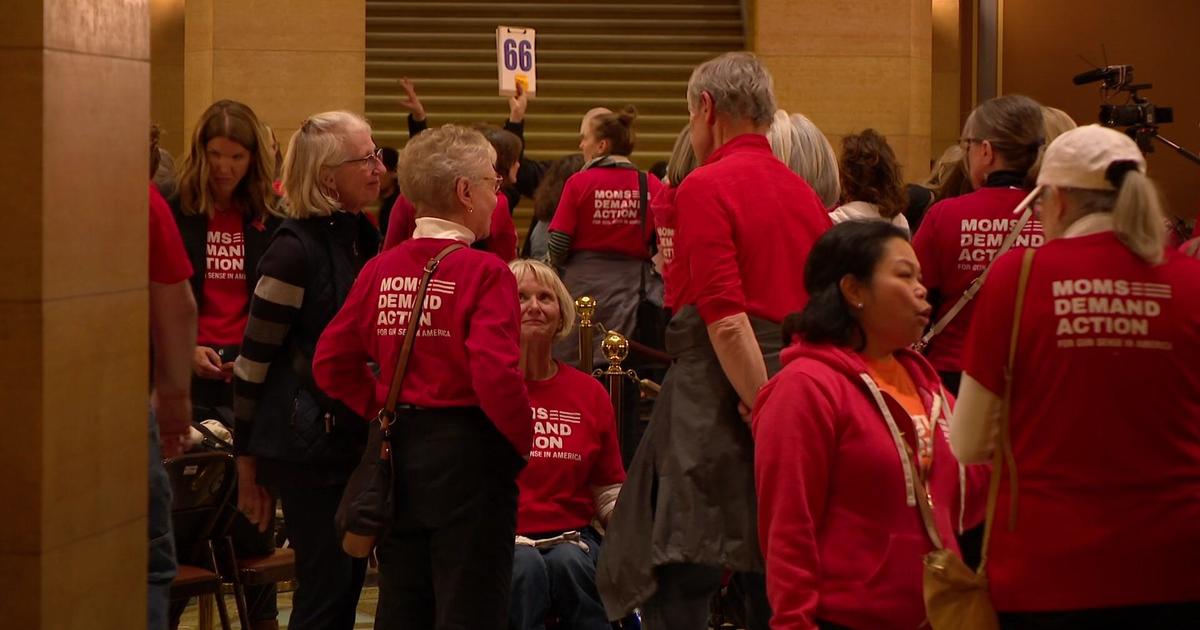Vikings Stadium Financing Plan: It's Complicated
ST. PAUL, Minn. (AP) — A selling point for the Minnesota Vikings stadium plan, advocates say, is that it doesn't depend on general tax dollars. That would mean it doesn't put pro football in direct competition with money for public schools, nursing homes or other valued programs.
How true that is is a key source of friction between stadium backers and opponents, and a concern for some lawmakers on the fence.
It's not easy to tell who's right. There are nuances with the financing tool being used, which are known as appropriation bonds. There are also questions of trust in revenue projections related to the gambling expansion being relied upon to pay off the bonds.
Here are some question and answers about the stadium financing mechanism:
Q: What is an appropriation bond?
A: The state would go through investors to get a lump sum of money to help pay builders of a stadium. The bonds are an obligation to repay debt with interest. The repayment comes in the form of a direct, regular appropriation by the Legislature. Nothing would guarantee the money would come through each year nor is a specific revenue stream formally pledged. But failure to make the appropriation would hurt the state's credit rating.
Q: How much is involved?
A: The bill permits sale of up to $650 million in bonds — more than the publicly subsidized portion for the proposed $975 million Vikings stadium. The public share of the project is slated to be $548 million. The Vikings must come up with $427 million, though they are widely expected to get naming rights, sell seat licenses and tap into an NFL loan program for their end.
Q: How would the public debt be paid off?
A: Architects of the proposal insist a new form of pull-tab gambling will bring in far more money than needed to repay debt and give charities that sponsor the games a tax break. There are plenty of skeptics who say the estimates are too rosy and could fluctuate on interest in the games and the economy. Another portion would come from diverting a slice of sales tax money collected in the city of Minneapolis.
Q: Could the state treasury be exposed to risk?
A: If the gambling projections don't pan out, differing versions of the bill contain extra funding sources. The House plan includes "blink-on funding" such as taxes on luxury boxes, sports-themed lottery games, admission taxes and use of a Hennepin County tax. If the figures are way off, there is a chance future lawmakers would have to find money from other places in the budget.
Q: Has Minnesota used appropriation bonds before?
A: Not very often. But last year, the Legislature authorized the sale of appropriation bonds tied to a 1998 tobacco lawsuit settlement. By borrowing against future settlement payments, the state got hundreds of millions of dollars to temporarily plug a hole in the two-year budget. The future payments are pledged collateral, leaving a sizable hole in the state budget every two years and costing a large chunk of interest over the life of the bonds.
Q: How was the Twins deal structured for Target Field?
A: To build that open-air ballpark in Minneapolis, Hennepin County's board authorized the sale of $350 million in revenue bonds. Those bonds have a dedicated stream of money for their repayment — a 0.15 percent sales tax in the county.
Q: What other options are out there?
A: General obligation bonds are considered the safest investment and would carry the lowest interest rate. Those bonds pledge the state's taxing authority — its "full faith and credit" — as collateral against default. But the bonds require a three-fifths majority to pass, which is a tall order for a bill that might only scrape by the way it is.
(© Copyright 2012 The Associated Press. All Rights Reserved. This material may not be published, broadcast, rewritten or redistributed.)



